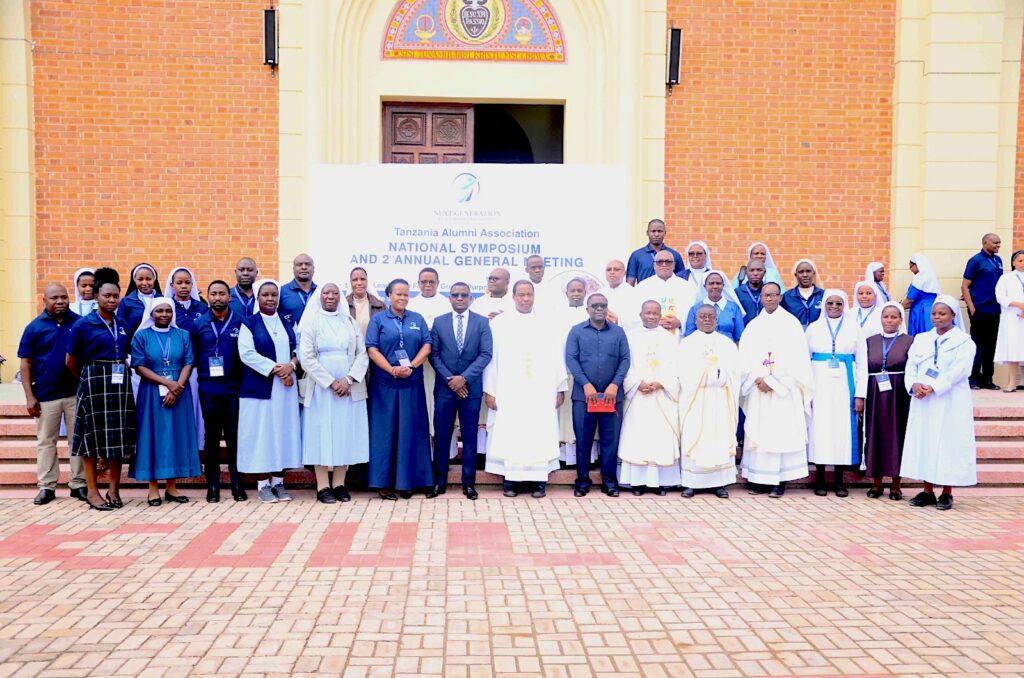TANZANIA: Next Generation Leadership Program Conducts National Symposium Focusing on Male Child Protection

NGLP, Tanzania
Sarah Pelaji
The Next Generation Leadership Programme (NGLP) has conducted a National Symposium in Dodoma Archdiocese Tanzania from 26th to 27th April 2024.
At the symposium, the Secretary General of Tanzania Episcopal Conference (TEC) Rev. Charles Kitima insisted that all Catholic Scholarship Program in Tanzania which has now changed to NGLP beneficiaries must foster servant leadership.
“We need leaders who serve others, who sacrifice for others so that we build a very transparent and a charitable society. We appreciate those who made us who we are while sacrificing ourselves for others without profit consideration,” he insisted.
Lead by the Them ‘Servant Leadership for the greater purpose,’ the delegated had discussion on the position of the male child in the society and the challenges faced.
Presenting the topic, the NGLP Alumni Secretary Aida Leka, said sexual violence to the male child has increased in the country though the cases are not loudly spoken about.
She explained further that a male child in African cultures is considered an anchor to the family, a hero, thus parents take low consideration in parenting them. A male child often lacks formation from parents, a situation that causes many of them to be subjected to acts of cruelty for they are left free.
A male child in Africa has no room to express much his feelings while the female child is more protected socially with different laws than male child.
She said, apart from the lack of parental guidance, male children are currently in a more vulnerable environment than female children, so the government must enact a law to protect them as it did for female children.
“Currently, male children are subjected to acts of violence at home, school and on the streets. We are asking the government to enact a law to protect the male child as it did for the female child,” he said.
It was suggested that parents should also be proactive in protecting their children by giving them the time, listening to them so that they can find out what they are going through in the street, at school and even at home.
“Parents, we have to change, each child need protection, let us protect our sons, because if these are destroyed today, where will we find bishops, priests, fathers of families who are not responsible and ethical leaders,” she said.
He said statistics are showing that many male children are subjected to acts of violence in their homes by close relatives.
“I should ask my brothers if your brother comes from the village, don’t let him sleep with your children if he doesn’t have enough money to stay at a guest house, then he should leave. It’s better they say you don’t want relatives than to destroy the children,” she said.
Similarly, she requested parents to build their children’s self-confidence, ethics, self-reliance and accountability.
It should be remembered that, NGLP prepares new and existing leaders in the African Church to practice Servant Leadership and a culture of Synodality.
This is achieved primarily by providing selected religious and laypersons with advanced educational opportunities as well as courses and immersion in servant leadership, child protection and safeguarding, executive management skills, and Catholic Social Teaching.
NGLP is supported by Porticus to empower students through professional education at Certificate, Diploma, and Degree and Masters levels. The program develops curricula for targeted leadership courses in servant leadership, executive management, child protection and safeguarding, and Catholic Social Teaching.
NGLP builds the capacity and improve the management of scholarship Boards and host universities in Kenya, Uganda, and Tanzania to manage the selection process, induction, and monitoring of students; improves operational efficiency and digitize the operations of the programme, and provide continuous professional development and capacity building in management, leadership, and governance for the programme alumni.
The program also conducts baseline and research studies in East Africa to determine the knowledge and leadership gaps. In this way, it has been able to reach its target population and is well received among scholars and nominating institutions.
49- 61% are already in leadership/managerial positions in their apostolic work/ congregations after a year of graduation. Between 16-22% are already in managerial positions as they joined the NGLP suggesting the NGLP is more likely to achieve its anticipated outcomes and impact.


